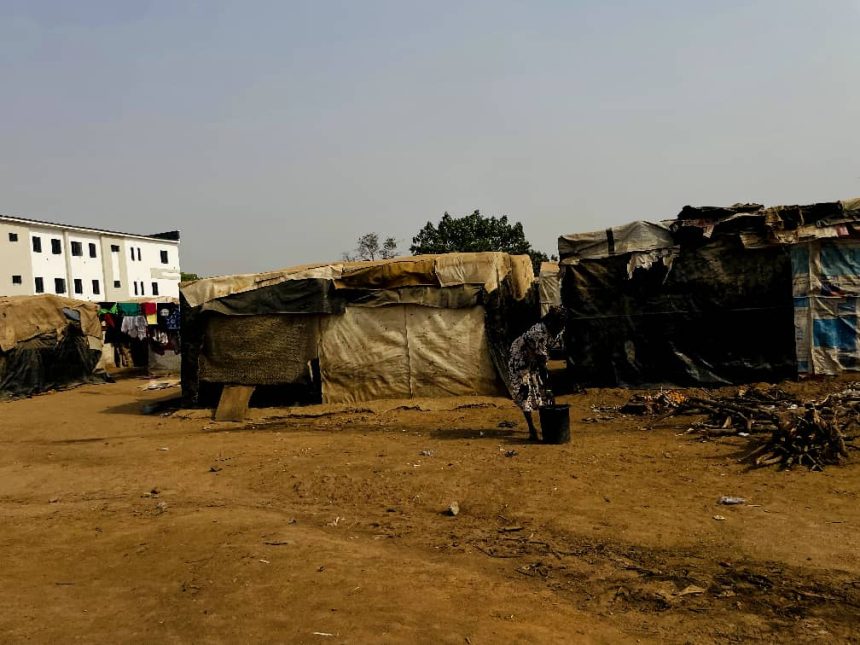BY: Ubong Usoro
Africans are fortunate to inherit land passed down through generations.
Some of us do not have to worry too much about where to live, as we have a share of our community lands and can gather housing materials.
However, when tragedy strikes, the struggle for survival can force people to flee from even their dearest possessions.
Terrorists attacked the Kunchingoro IDP camp residents, who had been displaced by the 2014 Gwoza massacre.
They then traveled 450 miles to Abuja in search of safety and security, leaving behind properties worth millions of naira.
Sadly, the living conditions in the camp are subhuman.

Housing TV reporter Ubong Usoro visited the camp on Saturday, the 16th, and spoke with some of the residents about their plight.
In an interview, Mrs. Hanatu, the Vice Principal of the camp’s school, expressed fears of possible eviction due to ongoing development.
“We left our communities so we could live. We are a peaceful people.
The living conditions are bad—we struggle to get water and have no power.
The developers may soon chase us away. It looks like it’s just a matter of time,” she said.
The IDPs live in makeshift shelters built from zinc sheets, waterproof materials, cellophane, and various scraps.
These shelters have no ventilation or drainage, and everything is crammed together. The conditions are truly terrible.
Also speaking, Mr. Luka Ali described the severe discomfort and health risks they face in the camp.
“You cannot say that we have houses. What you see here are just huts to sleep in.
There is no comfort. We are not happy that we are here, but what can we do?
Housing is essential to health and well-being, but we lack all of this. The conditions are terrible,” he lamented.
While housing is a basic need for all humans, those in IDP camps are denied this right.
The government can assist by providing proper shelters, possibly in phases, starting with the most vulnerable.



